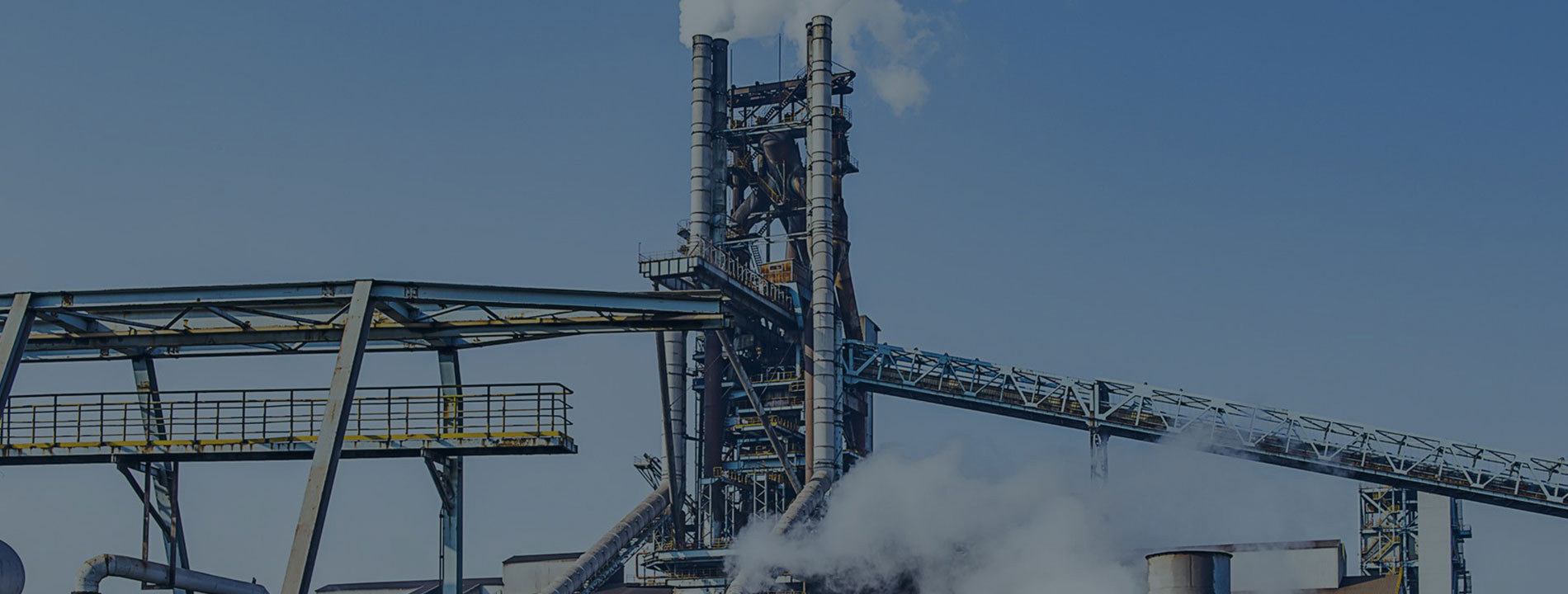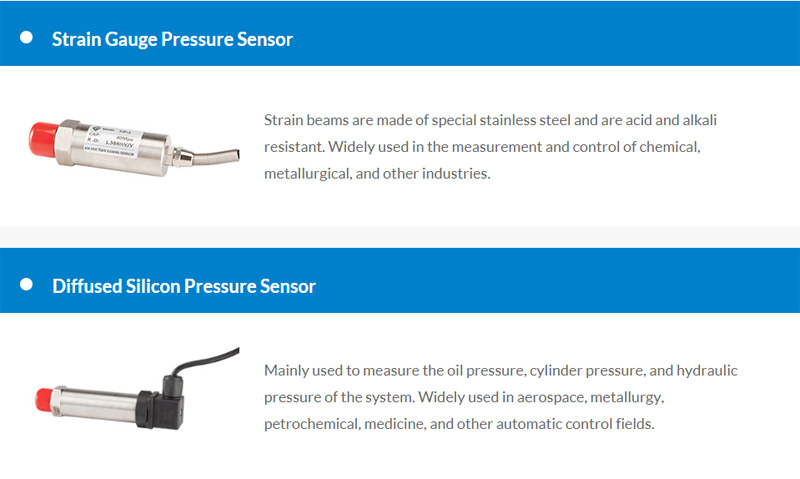

Pressure sensor is a device or equipment that can sense pressure signals and convert them into usable output electrical signals according to certain rules. Pressure sensors are usually composed of pressure sensitive elements and signal processing units. According to different types of tested pressure, pressure sensors can be divided into gauge pressure sensors, differential pressure sensors, and absolute pressure sensors.
Pressure sensor is the most commonly used sensor in industrial practice, and it is widely used in various industrial automatic control environments, involving many industries such as water conservancy and hydropower, railway transportation, intelligent building, production automatic control, aerospace, military industry, petrochemicals, oil wells, electric power, ships, machine tools, pipelines and so on.
In humid, acidic and other corrosive environments, the elasticity of the pressure sensor can be damaged or short-circuited. When the outer surface is coated with plastic or stainless steel, pressure sensors with corrosion resistance and good sealing performance should be selected.
High temperature environment causes problems such as the melting of coating materials in the elastic body, opening of welded joints, and changes in stress structure. High-temperature sensors are usually used for sensors that work in high-temperature environments. In addition, insulation, water cooling or air cooling devices are required.
Flammable and explosive gases not only cause damage to pressure sensors but also pose a great threat to other equipment and personnel. Therefore, pressure sensors working in flammable and explosive environments have higher requirements for explosion-proof performance: explosion-proof pressure sensors should be selected for flammable and explosive environments. The sealing housing of the sensor should not only consider its sealing performance but also consider the explosion-proof strength, water resistance, moisture resistance, explosion-proof and explosion prevention of the cable leads.
Dust and humidity cause short circuits to pressure sensors. Under these environmental conditions, sensors with high airtightness should be selected. Different sensors have different sealing methods, and their airtightness is also quite different. For pressure sensors working in clean and dry indoor environments, sealed sensors can be used; for some sensors working in humid and dusty environments, vacuum-filled nitrogen-sealed pressure sensors with membrane hot jacket sealing or membrane welding sealing can be used.
The influence of electromagnetic fields on pressure sensors outputting error signals. In this case, the shielding of the sensor should be strictly checked for good electromagnetic resistance.
Pressure sensors are applied in various industries, especially in the industry, pressure sensors are widely used. However, the industry generally requires that pressure sensors can resist corrosion. The joint and chamber of the pressure sensor are processed as a whole with imported stainless steel, the stainless steel material used as the elastic body of the pressure transmitter is highly corrosion-resistant and has good attenuation performance, and can monitor any medium compatible with 316L. Next, let’s introduce some anti-corrosion techniques for pressure sensors.
First of all, understand whether the measured medium is compatible with 316L: 316 and 317L alloys did not corrode in the 100-hour 5% salt spray test. Secondly, when selecting sensor products, consult with the supplier whether the medium has an impact on the pressure sensor; select the corrosion-resistant material of the elastic body to meet the user's needs. Finally, we can use isolation methods: there are molybdenum, titanium and tantalum sheets in front of the pressure transmitter, and pressure is transmitted between the diaphragm and the orifice tube with methyl silicone oil, and the minimum range can be 0 to 100kPa. If the diaphragm material is still not resistant to corrosion, an F46 diaphragm can be added, but the instrument sensitivity is reduced. F46 can also be used directly as an isolation diaphragm, and fluorinated oil can be used for transmission, which can have a double isolation effect.
Pressure sensors must be replaced as soon as it is found that they are not compatible with the medium during use. For some special media, special materials or special structures can be used for measurement. Pressure sensors will definitely be more widely used in the future, so as a manufacturer, we must actively develop new types of pressure sensors to meet the needs.
Buy two types of press sensors from TG Load Cells - the well-trusted and well-experienced load cell supplier from China.
strain gauge type pressure sensor

86-552-4923688
No. 118, Jiahe Road, High-Tech Zone, Bengbu, Anhui, China
 English
English 日本語
日本語 한국어
한국어 français
français Deutsch
Deutsch Español
Español italiano
italiano português
português العربية
العربية tiếng việt
tiếng việt ไทย
ไทย
